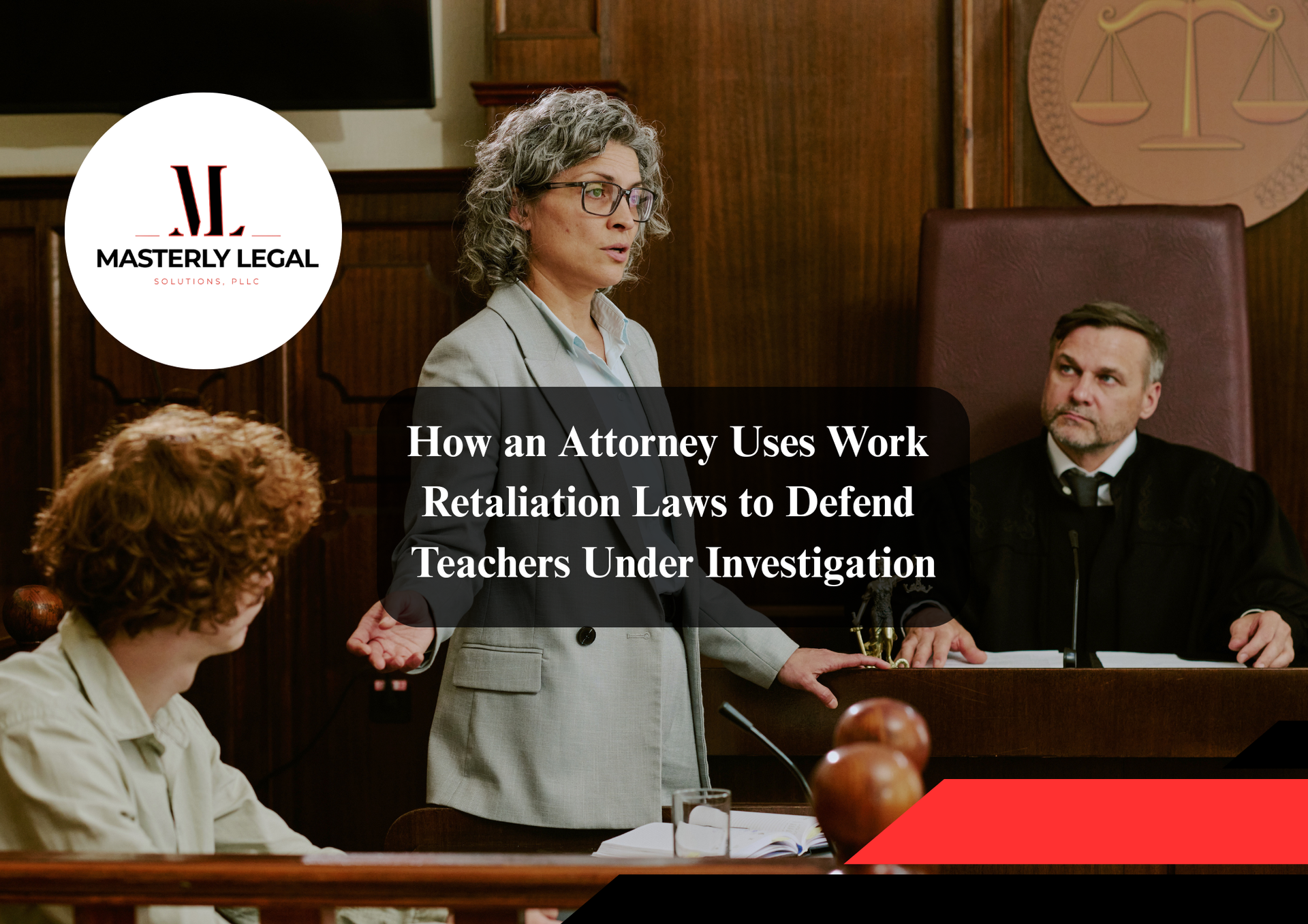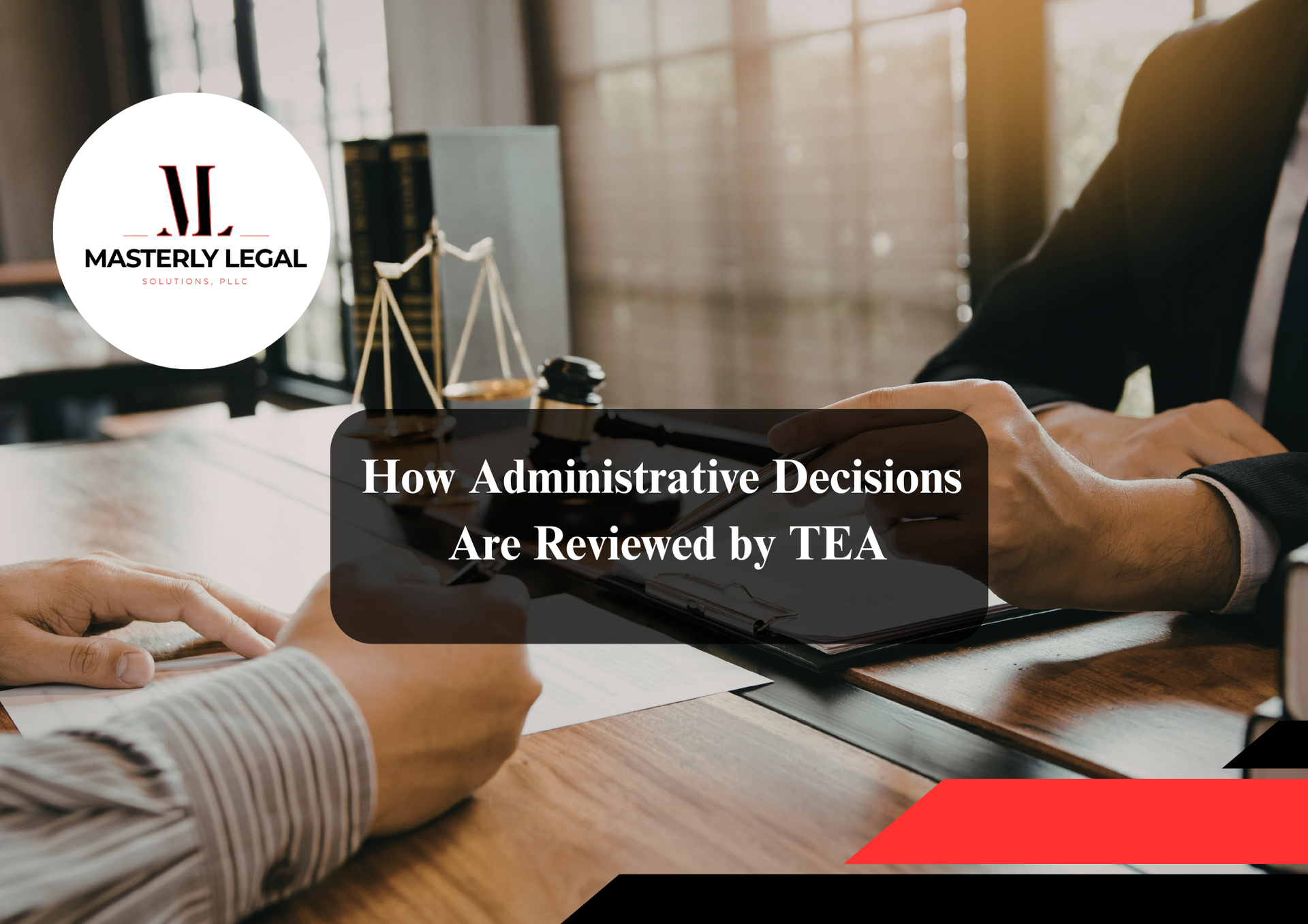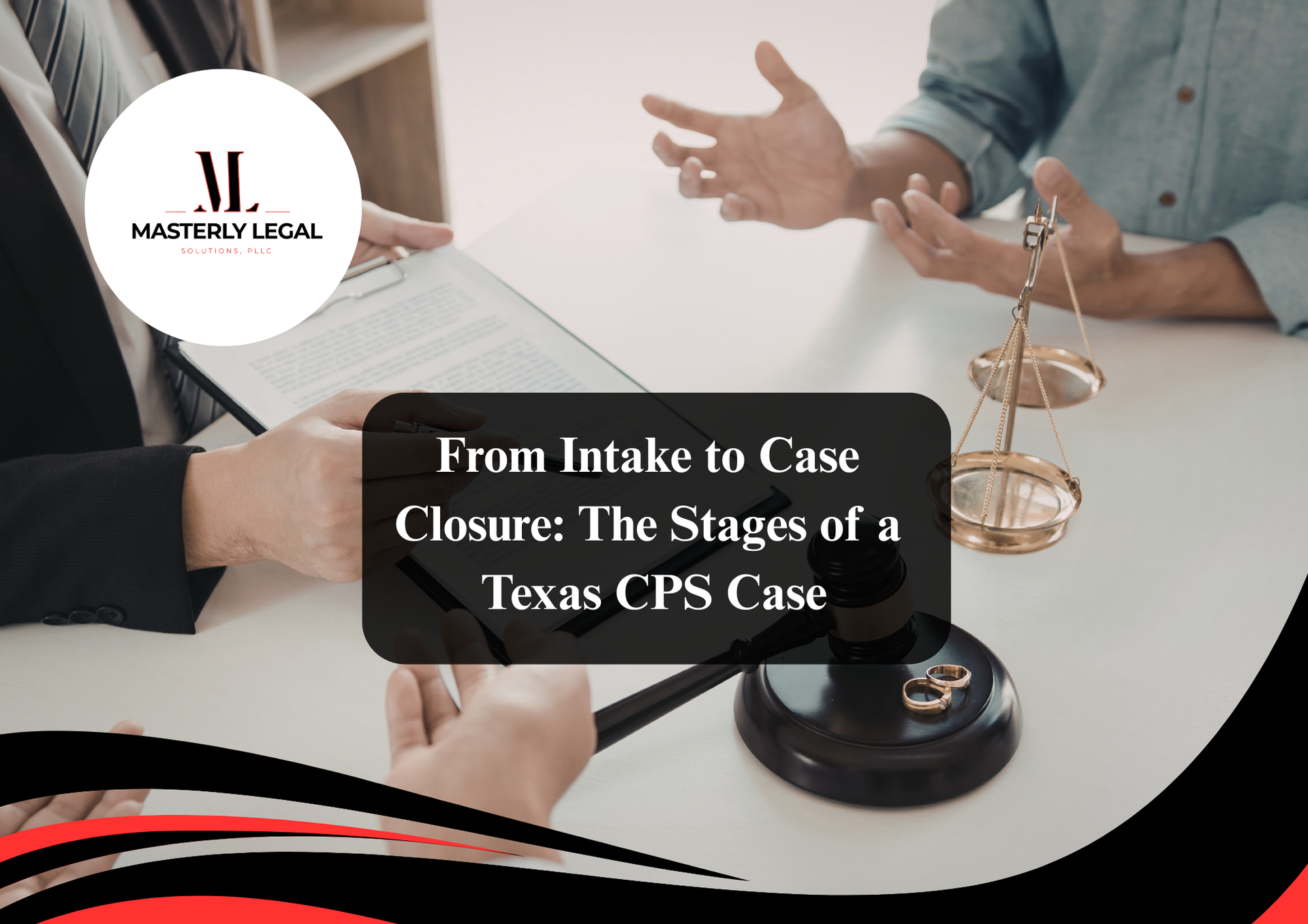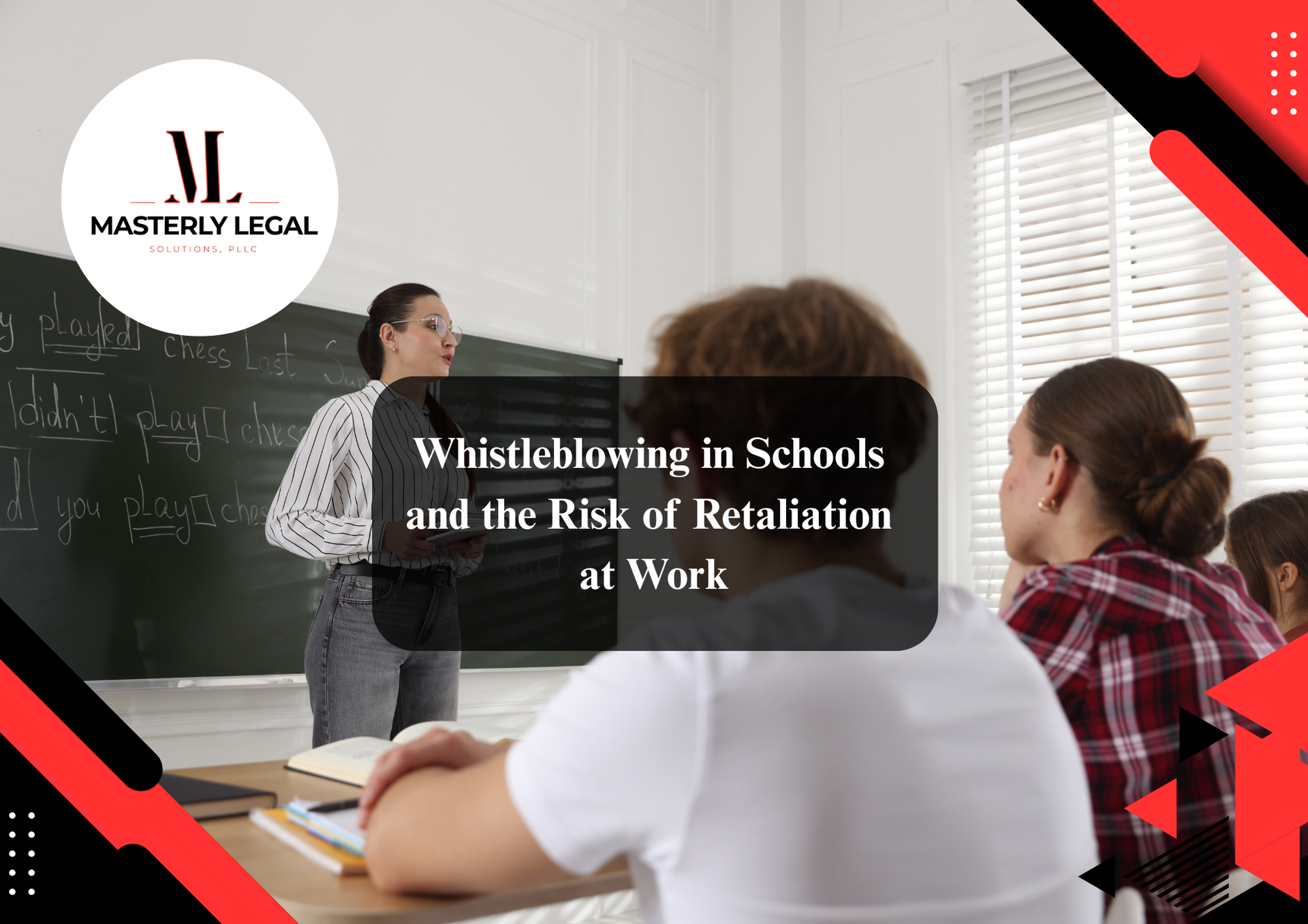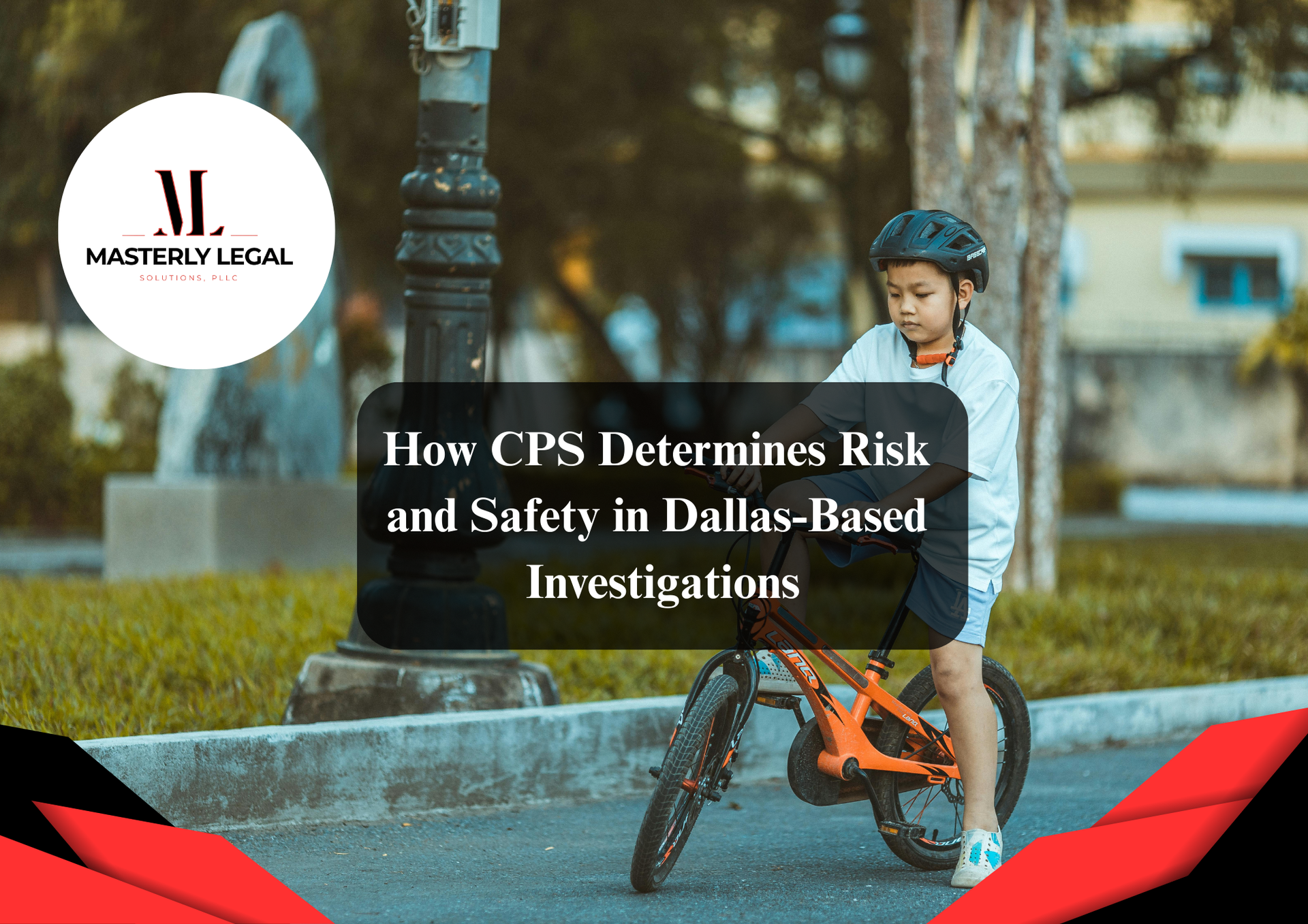Legal Essentials for College Professors: Contracts, Tenure, and Dispute Resolution
Understanding the legal framework that governs the careers of college and university professors is critical for long-term professional success. From contract negotiations to tenure security and dispute resolution, higher education professionals must navigate complex issues that can impact their reputation, job stability, and future employment. At Masterly Legal Solutions, we specialize in guiding educators through these challenges—especially when issues arise during or after a Title IX investigation.
This article will explore essential legal considerations for college professors, including the implications of faculty contracts, tenure rights, and the growing concerns surrounding Title IX disputes. We’ll also break down common contract conflicts and explain how retaining legal counsel can protect your career and academic standing.
Faculty Contracts: The Foundation of Academic Employment
What Are Faculty Contracts?
Faculty contracts outline the terms and conditions of employment for college professors. These documents are legally binding and typically include:
- Job duties and teaching expectations
- Compensation and benefits
- Academic calendar commitments
- Term length and renewal terms
- Grounds for termination or non-renewal
Whether you are in a tenure-track position or on a renewable term, understanding your contract is essential to protecting your rights within an educational institution.
Common Issues with Academic Contracts
Professors often encounter issues related to:
- Ambiguous terms that lead to misunderstandings
- Non-renewal disputes without cause or explanation
- Shifting workloads beyond what was originally agreed upon
- Unilateral changes to pay, benefits, or job expectations
When these situations arise, an experienced education law firm can assess whether your rights have been violated and help you pursue a fair resolution.
The Tenure Track: Legal Protections and Pitfalls
What Is Tenure?
Tenure is a contractual right granted to certain college and university professors after a probationary period, providing job security and protection from arbitrary dismissal. Tenured faculty members typically have greater academic freedom and long-term employment guarantees.
Legal Disputes Over Tenure
Tenure disputes can occur when:
- A professor is denied tenure unfairly after meeting institutional criteria
- An institution revokes tenure due to allegations of misconduct or budgetary concerns
- The tenure review process is biased or inconsistent
Disputes may escalate to legal proceedings if faculty are accused of violating Title IX policies or are otherwise targeted by institutional changes.
Dispute Resolution Mechanisms in Academia
Internal Resolution Pathways
Most colleges have internal procedures to resolve disputes, including:
- Faculty grievance committees
- Academic review panels
- Mediation through human resources
However, these processes may not be impartial, particularly if the professor is facing Title IX allegations or administrative retaliation.
When to Seek Legal Representation
A law firm with experience in academic disputes can:
- Review contracts and grievance outcomes
- Represent you in arbitration or court
- Protect your rights during Title IX hearings or administrative reviews
Early legal intervention can often prevent irreversible harm to your career.
Title IX: A Growing Concern for Faculty
Understanding Title IX in the Academic Workplace
Title IX is a federal law that prohibits sex discrimination in any education program or activity that receives federal financial assistance. While commonly associated with student protections, Title IX also applies to faculty and staff.
Title IX Allegations Against Professors
Professors may be accused of:
- Sexual harassment
- Sexual assault
- Sexual misconduct
- Creating a hostile academic environment
Facing Title IX allegations can lead to investigations, suspension, or even termination—especially when criminal charges are involved.
How Long Can a University Suspend Their Title IX Investigation?
There is no fixed national standard for how long a university may suspend a Title IX investigation. The Title IX office at each institution typically sets procedural timelines, but investigations may be delayed or paused due to:
- Administrative transitions
- Academic calendar breaks
- Pending criminal investigations
- Requests from either party
While the Title IX process is meant to be prompt and equitable, some universities may suspend their investigations indefinitely. If you're involved in a delayed case, it’s crucial to seek guidance from a skilled Title IX attorney who can demand transparency or push for resolution.
The Title IX Process: What Professors Need to Know
Key Stages of a Title IX Investigation
- Filing a Title IX complaint
- Notification of the accused
- Evidence collection and interviews
- Title IX hearings or informal resolution
- Final decision and potential sanctions
During these proceedings, both the complainant and the accused student or professor may present evidence and seek legal representation.
Challenges for Faculty Defendants
Professors accused of a Title IX violation often face:
- Biased investigations
- Lack of access to evidence
- Pressure to resign or settle
- Negative publicity and reputational harm
These outcomes can occur before any formal hearing, underscoring the importance of having an experienced Title IX defense lawyer.
Title IX Disputes and Academic Freedom
How Title IX Impacts Classroom Conduct
Faculty must navigate complex issues such as:
- Teaching sensitive subjects
- Classroom debates on gender and sexuality
- Supervising student work involving controversial topics
Even well-meaning professors may be accused of violating Title IX due to perceived bias or insensitive remarks.
Legal Defenses in Academic Freedom Cases
If you’re facing Title IX actions stemming from your teaching or academic expression, an experienced Title IX attorney can argue that your rights to academic freedom were compromised, especially when your statements were within the scope of your professional duties.

Title IX Proceedings vs. the Criminal Justice System
Parallel Legal Tracks
Some Title IX cases also involve criminal charges. In such instances, the university may:
- Conduct a Title IX investigation independently
- Pause their process until the criminal case concludes
- Use police evidence during Title IX hearings
This dual exposure creates risks, making it essential to coordinate your legal defense across both systems.
Role of Legal Counsel in Title IX Cases
Why Hire a Title IX Defense Attorney?
A Title IX defense attorney can:
- Navigate procedural rules under Title IX law
- Identify biases in the investigation
- Help present evidence effectively
- Protect your career and teaching credentials
Whether you’re in a public or private school, your rights under federal law remain intact.
Navigating New Title IX Regulations
Recent Changes Affecting Faculty
New Title IX regulations continue to reshape the obligations of educational institutions. Recent updates may alter:
- How allegations are investigated
- Who can file complaints
- What evidence is considered admissible
Stay informed about these rules and how they impact faculty members.
Common Mistakes Professors Make During Investigations
- Speaking without legal counsel
- Ignoring Title IX communications
- Assuming innocence guarantees protection
- Agreeing to informal resolutions under pressure
- Relying solely on institutional support
Avoiding these mistakes begins with consulting a nationwide Title IX lawyer.
Disciplinary Consequences for Professors
Potential outcomes include:
- Administrative leave
- Termination of employment
- Denial of tenure or promotion
- Damage to academic reputation
- Barriers to future employment in educational programs
Even accusations without merit can lead to professional isolation or early retirement.
The Importance of Evidence in Title IX Cases
Building a Strong Defense
Professors accused of sexual misconduct or harassment must be proactive in gathering:
- Email or message records
- Class syllabi and materials
- Witness statements
- Documentation of timelines
This evidence can make the difference in Title IX proceedings.
The Intersection of Faculty Rights and Title IX Rules
Balancing Institutional Policies and Legal Rights
While Title IX guarantees equal access, it must be enforced alongside faculty rights, including:
- Freedom of expression
- Due process
- Confidentiality protections
- Contractual obligations
Ensuring this balance often requires legal oversight.
When a Title IX Complaint Is Unfounded
Clearing Your Name
If the investigation reveals inconsistencies or false allegations, your legal team can petition for:
- Dismissal of charges
- Expungement from faculty files
- Public correction of misinformation
- Full reinstatement of privileges
False accusations must be addressed strategically and legally.
Faculty Defendants and Campus Misconduct Policies
Beyond Federal Law
Each institution also has its own Title IX policies and campus misconduct codes, which can vary significantly. Your legal defense must account for both institutional policies and overarching federal law.
The Role of the Title IX Office
Understanding Its Function
The Title IX office oversees:
- Complaint intake and triage
- Assignment of investigators
- Oversight of hearing processes
- Enforcement of sanctions
Knowing the office’s scope and limitations is vital when you're facing Title IX accusations.
Impact on Graduate School and Research Opportunities
Professors under investigation may lose:
- Access to research funding
- Graduate student supervision roles
- Speaking invitations
- International travel opportunities
A proactive legal response helps protect your career trajectory.
Legal Counsel as a Strategic Partner
Choosing the Right Title IX Lawyer
Look for a legal team with sports attorneys who understand every aspect of an athlete's career:
- Experience in Title IX defense
- Familiarity with education amendments
- Success in Title IX cases
- Strong academic background understanding
At Masterly Legal Solutions, our attorneys are well-versed in defending university students, faculty, and staff across the country.

Don’t Wait Until It’s Too Late
Many professors wait until they receive a formal notice or hearing date. But by then, their case may already be compromised. Engage with a Title IX attorney early to ensure your rights and career are fully protected.
When a College Professor Faces a Case Involving an Accused Student
In some situations, professors become involved in Title IX investigations not as the accused, but as witnesses, advisers, or even respondents in cases involving an accused student. These cases typically involve allegations of sexual violence, harassment, or other misconduct within the school’s education program. Because the institution receives federal funding, it is obligated to take every claim seriously and follow strict compliance protocols.
Professors may be called upon to present evidence, provide testimony, or support the institution’s hearing processes. However, if the situation escalates—especially if the professor is also accused or implicated—what begins as support for an accused student can quickly turn into personal exposure. Legal counsel ensures your involvement does not unintentionally jeopardize your career or reputation.
Navigating Title IX Hearing Processes in Academia
The hearing processes involved in a Title IX investigation are critical stages that determine whether a professor or student will face disciplinary action. For faculty members accused of sexual misconduct or sexual harassment, these proceedings can be highly formal, often resembling courtroom procedures. Universities that receive federal funding are required to provide fair and equitable hearings as part of their compliance with Title IX law.
During these hearing processes, both parties may be allowed to present evidence, call witnesses, and be represented by legal counsel or a Title IX defense attorney. However, policies can vary widely between institutions, and professors often encounter biased decision-makers or unclear procedural rules. Understanding your rights—and having skilled legal representation—is crucial to ensuring that these Title IX proceedings are conducted lawfully and with due process.
Responding to Title IX Charges as a College Professor
Facing Title IX charges can be overwhelming, especially when you're a faculty member at a university that receives federal funding. These charges often stem from accusations of sexual harassment, sexual violence, or inappropriate conduct within the school's education program. Once charges are filed, the education's office initiates an investigation, which may lead to hearings, administrative leave, or even termination—regardless of tenure status.
Professors must understand that Title IX charges are not criminal charges, but the consequences can still be career-ending. You may be restricted from teaching, supervising research, or engaging with college and university students. Having a Title IX defense lawyer by your side is essential to ensure your voice is heard and your rights are upheld throughout the process.
Legal Challenges When Accused of Sexual Assault Under Title IX
Being accused of sexual assault within a university setting carries immediate and severe consequences, especially when the institution receives federal funding and is under pressure to comply with Title IX regulations. Professors facing these allegations are often subjected to interim suspensions, restricted access to campus, and reputational harm long before the investigation concludes.
The Title IX process can move quickly, and faculty members accused of such serious violations must act just as swiftly. Without a knowledgeable Title IX defense attorney, you may be denied a fair chance to present evidence, question your accuser, or challenge procedural flaws. If you’ve been accused of sexual assault as part of a Title IX investigation, your career, credentials, and legal rights demand immediate and strategic legal representation.
How Receiving Federal Funding Triggers Title IX Obligations
Any college or university that receives federal funding is legally bound to follow Title IX mandates. This includes maintaining a campus environment free from sex discrimination, investigating all related complaints, and enforcing disciplinary actions when necessary. Because nearly every higher education institution depends on federal financial assistance, compliance is not optional—it’s mandatory.
As a result, schools often act swiftly and decisively when a Title IX complaint is filed, whether the subject is a student or a faculty member. Understanding this link between institutional policy and the fact that the school receives federal funding is crucial for anyone involved in a Title IX investigation or accused of a Title IX violation.
The Impact of Federal Funding on Title IX Enforcement
Any educational institution that receives federal funding is required to comply with Title IX regulations. This includes nearly all colleges and universities, both public and private, as federal financial aid and research grants typically qualify as federal financial assistance. Because of this funding connection, institutions must investigate and respond swiftly to any Title IX complaints, regardless of whether the accused is a student or faculty member.
Failure to properly enforce Title IX policies could result in the loss of federal funding, making compliance a top priority for school leadership. Unfortunately, this pressure can lead to overly aggressive or biased actions against those accused of sexual misconduct, especially professors or employees. Understanding how federal funding influences the school’s motivations is essential for mounting an effective defense.
Why You Need a Title IX Defense Lawyer When Accused
If you're a professor or academic professional accused of violating Title IX, hiring a skilled Title IX defense lawyer is not just helpful—it’s critical. These cases often involve allegations of sexual misconduct, sexual harassment, or Title IX sexual violations that can derail your career and professional reputation. Because universities that receive federal funding must comply strictly with Title IX rules, investigations are often fast-moving and heavily biased in favor of institutional liability prevention rather than fairness.
A Title IX defense lawyer understands the complexities of the Title IX process, from responding to the initial complaint to challenging evidence during hearings. They ensure your rights are protected throughout each stage, including communication with school administrators, representation in meetings with the education's office, and preparation for testimony. Without proper legal guidance, professors risk long-term damage even if they're ultimately cleared of wrongdoing.
What Constitutes a Title IX Violation for College Professors?
A Title IX violation occurs when actions or behaviors result in discrimination on the basis of sex within an educational setting that receives federal funding. For college professors, this can include allegations of sexual harassment, sexual violence, or fostering a hostile learning environment. Even offhand remarks or classroom content may be scrutinized under Title IX law if deemed inappropriate or discriminatory by students or administrators.
Universities are required to investigate all formal Title IX complaints, and once a claim is filed, the accused becomes a Title IX defendant subject to institutional discipline, including suspension, loss of tenure, or termination. It is essential to understand that not every accusation amounts to a true violation—yet school policies may proceed as if guilt is presumed. Professors facing such challenges should consult a Title IX attorney immediately to ensure their rights are preserved and their defense is presented effectively.
Understanding Title IX’s Broad Reach Within Academia
Title IX applies to all college and university students, faculty, and staff within institutions that receive federal funding, regardless of whether the school is public or private. Since the law mandates that no person shall face sex discrimination under any school’s education program or activity, its implications extend deeply into both student conduct and faculty responsibilities. When students are accused or professors face Title IX claims, they become a Title IX defendant and are subject to rigorous scrutiny under university policy and federal regulations.
Title IX sexual misconduct allegations—ranging from sexual violence to inappropriate relationships—trigger immediate responses from a school's education's office and designated school administrators. These institutions must follow specific procedures to investigate and potentially impose Title IX charges, especially in matters involving individuals accused of sexual assault. Due to the legal and professional consequences at stake, understanding how Title IX applies and partnering with experienced legal counsel can make a critical difference in navigating the complexities of this federal statute.
Asserting Your Title IX Defense Rights in Higher Education
As a college professor accused of a Title IX violation, you have specific legal protections known as Title IX defense rights that are designed to ensure fairness throughout the investigative and disciplinary process. These rights are especially important in institutions that receive federal funding, where schools must act swiftly to address complaints but are also obligated to maintain due process for the accused. Your defense rights include the presumption of innocence, the right to receive detailed notice of allegations, access to all collected evidence, and the opportunity to present evidence and witnesses in your defense.
You are also entitled to have an advisor—such as a qualified Title IX defense lawyer—by your side during interviews, meetings, and hearing processes. Importantly, you have the right to challenge biased investigators or procedures and to appeal adverse findings. Understanding and actively asserting these Title IX defense rights is essential to protecting your academic career, especially when facing serious allegations such as sexual harassment, sexual violence, or other Title IX charges tied to your role in a school’s education program.
Title IX Defense Rights Every College Professor Should Know
When a college professor is named in a Title IX complaint, understanding and exercising your Title IX defense rights is essential to preserving your career, reputation, and legal standing. Under federal law, individuals accused of sexual harassment, sexual violence, or any form of sex-based misconduct within an institution that receives federal funding are entitled to due process protections. These rights include receiving written notice of the allegations, access to all evidence, the ability to present evidence, and the right to be represented by a Title IX defense attorney throughout the Title IX process.
You also have the right to a fair and impartial investigation, to participate in hearing processes, and to appeal the final decision if found responsible. However, many professors are unaware of these protections or discover too late that their rights have been violated by biased procedures or institutional pressure. To fully assert your Title IX defense rights, it’s vital to work with a legal team that understands the intersection of Title IX law, education's office protocols, and the realities of defending faculty in complex academic settings.
How to Choose a Title IX Defense Advisor: Key Factors for Faculty Facing Allegations
Selecting the right Title IX defense advisor is one of the most important decisions you’ll make if you’re a college professor facing Title IX allegations. While universities may allow any advisor—including a friend or colleague—it’s crucial to work with someone who understands Title IX law, institutional policies, and the high stakes involved for faculty members. An effective advisor not only guides you through hearing processes and helps you present evidence, but also protects your rights when you're navigating accusations of sexual misconduct, sexual harassment, or violating Title IX within a school’s education program.
Look for an advisor who is familiar with how Title IX applies in higher education settings, especially in institutions that receive federal funding. Experience with Title IX charges, education’s office procedures, and defense strategies specific to faculty members—rather than students—is essential. While schools may not require legal advisors, hiring an experienced Title IX defense lawyer as your advisor can significantly increase your chances of a fair outcome.
Need Answers About Title IX Investigations or Faculty Rights?
If you're unsure about your rights as a professor—especially regarding how long can a university suspend their Title IX investigation—reach out to us today. Whether you're dealing with a Title IX complaint, contract dispute, or tenure concern, we’re here to offer practical solutions grounded in the law. At Masterly Legal Solutions, our attorneys can answer your questions and help you make informed decisions about your next steps.
Contact us at (972) 236-5051 for a free consultation—because your career and reputation deserve more than guesswork.
This article is for informational purposes only and does not constitute legal advice. Please consult an attorney for personalized guidance regarding your specific situation.
Looking for Legal & Business Solutions? Contact Us Now
Fill in the form or call us to set up a meeting

